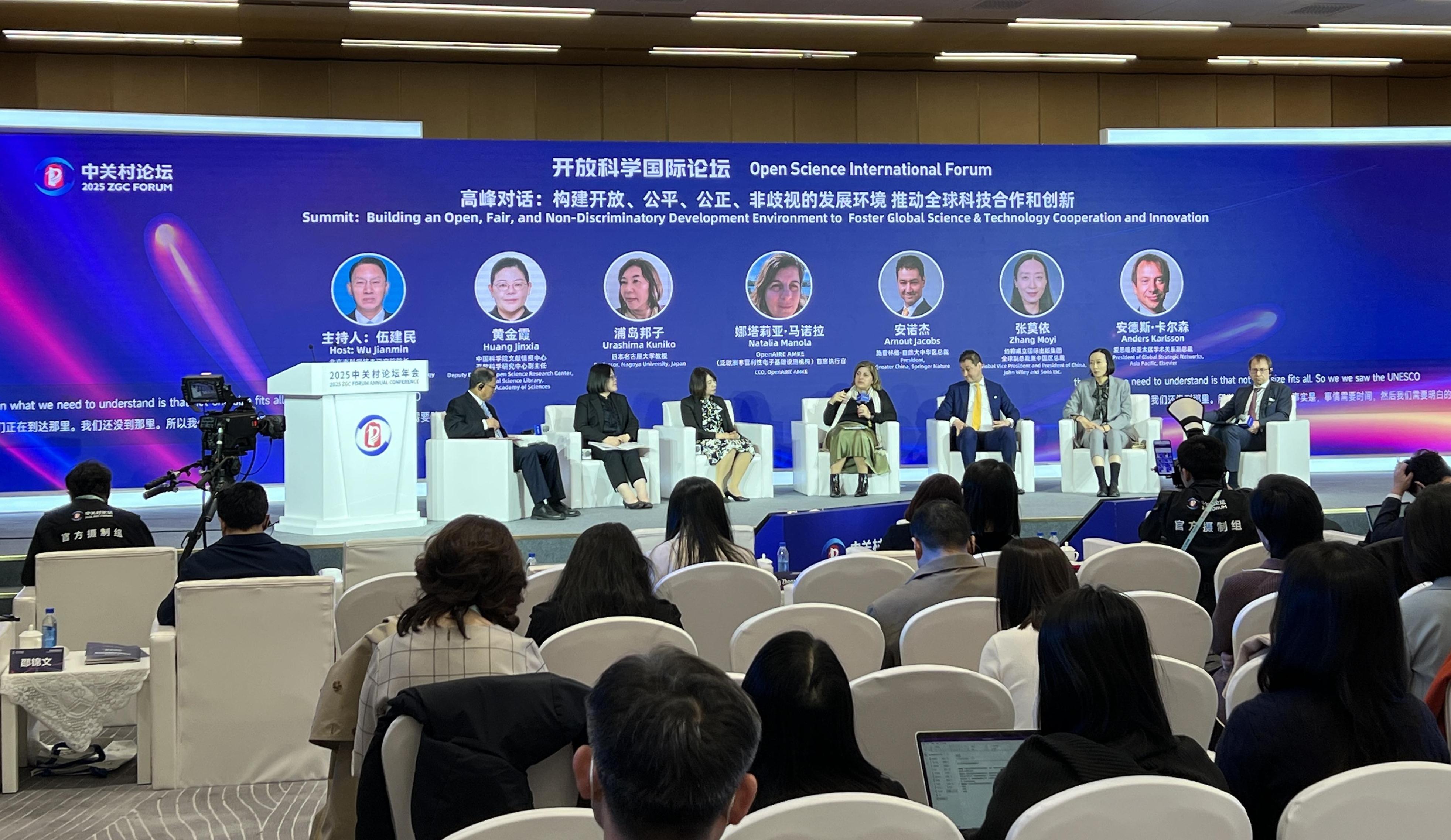Episode 2: AI for a Better Life

As AI continues to evolve at an unprecedented pace, with breakthroughs in generative models, ethical guidelines, and applications across various sectors, the question is often asked — how will these advancements positively impact people's daily life?
In the recent panel discussion "Tech with Heart, AI for Good," experts took a deep dive into the topic "AI for a Better Life." They explored the transformative potential of AI, discussing its role in healthcare, traditional Chinese medicine (TCM), legal services, and beyond.
Hosted by Wu Baojun from the University of Chinese Academy of Sciences, two experts were invited: Chen Yingying, an associate researcher at the Institute of Automation of the Chinese Academy of Sciences, and Professor Gao Shaolin, an expert from Peking University Law and AI Research Center.
AI is revolutionizing healthcare
The discussion began with examples of how AI is revolutionizing healthcare, particularly in bridging the gap between urban and rural medical resources.
"By utilizing smart technology, the experience and knowledge of seasoned doctors can now be shared more widely, reaching remote villages and mountainous regions as well as community hospitals," Chen said.
This democratization of quality medical care not only alleviates the shortage of primary-level medical staff but also improves diagnosis accuracy and efficiency through advanced image recognition technologies, such as those used in CT scans.
The application of AI in healthcare extends to TCM, which has been traditionally practiced based on centuries-old wisdom. Integrating AI into TCM could potentially make this ancient practice more accessible and accurate, thereby benefiting people globally.
TCM, described as an information science, relies on collecting various types of data through observation, listening, inquiry, and pulse-taking. Traditionally, it takes decades for TCM practitioners to accumulate enough experience to make accurate judgments.
"However, with AI, this process could be accelerated, making the wisdom of experienced TCM doctors accessible to everyone," Professor Gao said.
He added that the integration of AI into TCM promises to improve preventive healthcare, allowing for early detection and intervention based on comprehensive health information analysis.
For instance, AI can analyze collected data like facial complexion, tongue coating, and pulse patterns to predict potential health issues before they manifest. This approach aligns with the TCM principle of "treating disease before it occurs," which emphasizes prevention over cure. In this way, AI can help maintain public health by identifying risks and suggesting personalized preventative measures.
Legal services transformed by AI
AI is also transforming legal services. In the past, comprehending the vast body of laws, regulations, and statutes was a monumental task for legal professionals. Now, AI tools are being developed to organize legal knowledge, analyze disputes, and provide guidance on legal procedures.
Gao said these advancements not only promote legal education but also simplify court proceedings by simulating courtroom scenarios. As a result, trials can be more efficient, and many cases may reach agreements without debate, reducing the need for formal legal processes.
Furthermore, AI applications in contract review systems help prevent legal disputes by identifying potential points of contention before contracts are signed. This proactive approach ensures that contracts meet the true requirements of both parties, thereby minimizing conflicts during execution.
Additionally, AI can assist in finding similar case studies, providing individuals with a better understanding of legal procedures and enabling them to handle disputes more effectively. The use of AI in legal firms also opens up new career paths, combining computer science and law to create innovative solutions for complex legal challenges.
A future shaped by interdisciplinary collaboration
Looking ahead, both experts agreed that AI's influence will permeate all industries and fields, acting as a super-large framework that integrates diverse disciplines.
From mathematics and physics to energy and humanities, AI has the potential to empower different academic and industrial developments. The future of AI lies in interdisciplinary collaboration, where professionals from computer science and AI join forces with domain experts in various sectors. Such collaborations will drive innovation, leading to new professions and opportunities.
For young people planning their educational paths, the advice is clear: embrace interdisciplinary learning, understand technological trends, and focus on developing skills in creativity and imagination — qualities that remain irreplaceable by AI.
Professor Gao emphasized that while some jobs might evolve or change due to AI, new opportunities would arise, particularly in areas requiring human interaction, creativity, and emotional intelligence.
AI products benefit all
The international cooperation in AI development was also discussed. Chen said that many Chinese companies are striving to "go global," bringing excellent products developed within China's complete industrial chain to the world, like the social-networking and video-sharing platform TikTok.
Professor Gao noted that with more countries joining the Belt and Road Initiative, cultural exchanges and AI collaborations are deepening. Chinese intelligent products going global bring in smart applications that promote local AI industry development, contributing to China's vision of building a community with a shared future for humankind.
In essence, China's fundamental attitude towards developing AI highlights mutual benefit and common development, thus making countries more willing to cooperate with it. China's international collaboration in AI research aims to make joint efforts to improve people's livelihood worldwide.
We can expect that as AI continues to evolve, it offers a tool for humanity to explore wider horizons, assisting in the discovery of fascinating aspects of the universe and ultimately contributing to better lives for current and future generations.
The discussion concluded with the hope that AI would become a collaborator rather than a competitor, aiding humans in achieving greater fulfillment and development, envisioning a world where AI and humans work together to overcome challenges and build a better tomorrow.







